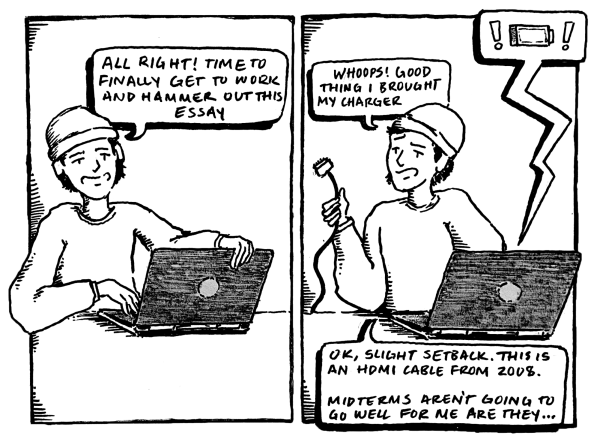Review Article on College Divestment Missed Broader Significance of Decision
Dear Review Editors:
To me, the article published in last week’s Review (“Trustees Reject Immediate Divestiture, Move to Divest Gradually,” The Oberlin Review, Nov. 4, 2022) missed the point. The central story should have been that a group of alumni, students, and faculty organized, lobbied, and proposed that Oberlin College make a formal commitment to divesting from fossil fuels. After prior attempts occurring over multiple decades, the trustees finally agreed to do just that. Yes, the proposal submitted included a shorter timeline than what was accepted, but most proposals get modified. In this case, the central goal was clearly a public commitment to divestment from fossil fuel holdings. That central goal was accepted and not rejected. Other media, such as the Elyria Chronicle-Telegram’s Nov. 3 story (“Oberlin College pledges to fully divest from fossil fuels”) captured the larger significance of Oberlin’s action.
Frankly, I agree with the trustees that it would be difficult to immediately divest given the systems of indirect investment in various instruments that Oberlin uses as financial instruments; we have funds that are managed by other entities that are controlled by other entities. Oberlin’s new decision and commitment will take time to implement. The point is that Oberlin now has a clear new decision and direction from the board to follow the long chains and to completely eliminate fossil fuel holdings, even at the margins. This finally brings our investment policy in line with the commitment to operate a carbon neutral campus that former President Nancy Dye made in 2006 when she was first among presidents of our peer institutions to sign the American College and University Presidents Climate Commitment.
It will have taken Oberlin 18 years from signing the ACUPCC to achieving a carbon neutral campus. As someone who has remained engaged in the twists and turns of this process throughout, I can say that I have often been frustrated by the slow pace we have taken in the face of an ever-expanding and increasingly evident climate emergency. However, a carbon-neutral campus, like a fossil fuel-free investment portfolio, does take time to implement. I credit the trustees for working toward the investment in the Sustainable Infrastructure Program necessary to achieve this.
I also credit the trustees for work toward the fossil fuel divestment goal even before they made this new formal commitment. Twenty years ago, Oberlin had significant investments in fossil fuel companies. Today, Oberlin has no direct holdings. Now, Oberlin has approved policy to make this divestment commitment formal and public and bring even indirect holdings to zero. This sends a message to the world that Oberlin views a fossil fuel-free global economy as central to the education and survival of future generations.
The board and our administration have been subject to a great deal of what I consider legitimate criticism regarding recent policies on labor, health care, governance, etc. Let’s take a moment to give both the Oberlin board and the alumni-student coalition that worked with them the credit they deserve for this important step forward for Oberlin College. Celebrating and giving credit for successes as they are achieved provides us with at least a little bit of forward momentum. We need all the momentum we can get as we ponder the far larger steps that are necessary to address the existential challenge of the climate catastrophe that is now beginning to unfold all around us.
John Petersen, OC ’88
Paul Sears Distinguished Professor of Environmental Studies and Biology, Director of Oberlin Environmental Dashboard Project


